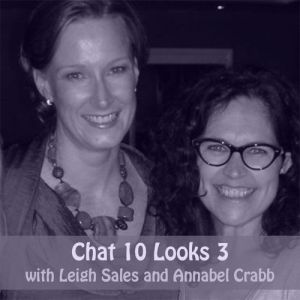If you saw Q&A on ABC last Monday, you would have seen Rosie Waterland as one of the panelists. “Who’s Rosie Waterland?” you may ask. It was, in fact, the first time that I have seen Rosie Waterland too, but she sounded very familiar because I’d been listening to her podcast ‘Mum Says My Memoir is a Lie’ for 22 episodes, over several weeks. You can find it here.
Rosie Waterland wrote an award-winning memoir about her troubled and dysfunctional childhood called The Anti-Cool Girl in 2015 . Her mother Lisa, an alcoholic, had been warned by her friends not to read it and, given her health and other problems at the time, it was highly unlikely that she would have done so. Two years later, however, Lisa had cleaned up her act and was sober and she read the book. This podcast, as mother and daughter face off over the veracity of Rosie’s memoir, is the result.For the first few weeks of listening to this, I found myself talking about it to anyone I came across, urging them to listen to it. It is graphic, disturbing, but also illuminating and thought-provoking.
Lisa, now in her 50s, has had her own troubled life, but has worked (remarkably) as a psychiatric nurse, and from her vocabulary, is clearly well-educated. From her voice, and accent, however, you can detect the effect of years of drug and alcohol abuse and some pretty hard living. Rosie sounds young (she is in her early 30s) and likewise, bears the traces of a private school education in her voice as well, mixed in with the effects of some pretty hard living in her own right. They often clash: sometimes over the veracity of Rosie’s obviously coloured memoir, which combines humour with real tragedy, but more importantly, often over blame and responsibility.
You don’t need to have read the book, because each podcast starts with Rosie reading a chapter until she reads the whole way through. There’s mutual embarrassment here, when Rosie is reading about her own, or her mother’s, sex life, and discomfort when she exposes Lisa’s multiple failures as a mother. Then, after Rosie has finished reading the chapter, they ‘discuss’ it. Sometimes it’s outright denial from one or the other of them; other times it’s reflection and a step towards reconciliation. At other times, it sparks off an argument that you just know has been had many times before. It’s interesting (and somewhat voyeuristic) listening to the whole of an argument, as distinct from just overhearing snatches of it on the phone, or worse still, being involved in the altercation yourself. You hear the shifts in the logic; the outright stupidity; the inadequacy and immaturity of other parts of the argument. Your sympathies shift back and forth. I noticed this most with the episode about Rosie’s weight gain.
Is it my age perhaps? For all Lisa’s flaws (and they are legion, as they are with us all), I found myself more often on her side. I wish her well.
But I must confess that by the end of the series, I was tiring of it. The next-to-last two or three episodes could be easily skipped, with just the final episode as closure (and even that last one went on too long). I wondered why she felt Rosie felt that she had to abnegate herself through her revelations (TMI, you might say) and combined with her weight problems, I started to feel too voyeuristic and even complicit in heightening Rosie’s pain. Will she still want this podcast to be around in ten years? I wonder.
But the first, say, 15, episodes I found absolutely compelling. Brave stuff- from both of them. And when I saw her on Q&A the other night, I felt as if I were hearing the voice of a friend.









